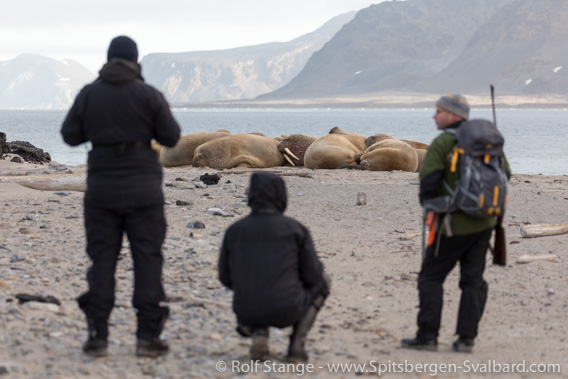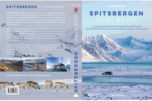-
current
recommendations- Liefdefjord
New page dedicated to one of Spitsbergen's most beautiful fjords. Background information and many photos.
- New Spitsbergen guidebook
The new edition of my Spitsbergen guidebook is out and available now!
- Liefdefjord
New page dedicated to one of Spitsbergen's most beautiful fjords. Background information and many photos.
Page Structure
-
Spitsbergen-News
- Select Month
- May 2025
- April 2025
- March 2025
- February 2025
- January 2025
- December 2024
- November 2024
- October 2024
- September 2024
- August 2024
- July 2024
- June 2024
- May 2024
- April 2024
- March 2024
- February 2024
- January 2024
- December 2023
- November 2023
- October 2023
- September 2023
- August 2023
- July 2023
- June 2023
- May 2023
- April 2023
- March 2023
- February 2023
- January 2023
- December 2022
- November 2022
- October 2022
- September 2022
- August 2022
- July 2022
- June 2022
- May 2022
- April 2022
- March 2022
- February 2022
- January 2022
- December 2021
- November 2021
- October 2021
- September 2021
- August 2021
- July 2021
- June 2021
- May 2021
- April 2021
- March 2021
- February 2021
- January 2021
- December 2020
- November 2020
- October 2020
- September 2020
- August 2020
- July 2020
- June 2020
- May 2020
- April 2020
- March 2020
- February 2020
- January 2020
- December 2019
- November 2019
- October 2019
- September 2019
- August 2019
- July 2019
- June 2019
- May 2019
- April 2019
- March 2019
- February 2019
- January 2019
- December 2018
- November 2018
- October 2018
- September 2018
- August 2018
- July 2018
- June 2018
- May 2018
- April 2018
- March 2018
- February 2018
- January 2018
- December 2017
- November 2017
- October 2017
- September 2017
- August 2017
- July 2017
- June 2017
- May 2017
- April 2017
- March 2017
- February 2017
- January 2017
- December 2016
- November 2016
- October 2016
- September 2016
- August 2016
- July 2016
- June 2016
- May 2016
- April 2016
- March 2016
- February 2016
- January 2016
- December 2015
- November 2015
- October 2015
- September 2015
- August 2015
- July 2015
- June 2015
- May 2015
- April 2015
- March 2015
- February 2015
- January 2015
- December 2014
- November 2014
- October 2014
- September 2014
- August 2014
- July 2014
- June 2014
- May 2014
- April 2014
- March 2014
- February 2014
- January 2014
- December 2013
- November 2013
- October 2013
- September 2013
- August 2013
- July 2013
- June 2013
- May 2013
- April 2013
- March 2013
- February 2013
- January 2013
- December 2012
- November 2012
- October 2012
- September 2012
- August 2012
- July 2012
- June 2012
- May 2012
- April 2012
- March 2012
- February 2012
- January 2012
- December 2011
- November 2011
- October 2011
- September 2011
- August 2011
- May 2011
- April 2011
- March 2011
- February 2011
- January 2011
- December 2010
- November 2010
- September 2010
- August 2010
- July 2010
- June 2010
- May 2010
- April 2010
- March 2010
- February 2010
- November 2009
- October 2009
- August 2009
- July 2009
- June 2009
- May 2009
- April 2009
- March 2009
- February 2009
- January 2009
- December 2008
- November 2008
- October 2008
- August 2008
- July 2008
- June 2008
- May 2008
- April 2008
- March 2008
- February 2008
- April 2000
- Select Month
-
weather information
-
Newsletter

| Guidebook: Spitsbergen-Svalbard |
Home →
Daily Archives: 12. May 2021 − News & Stories
Official certification scheme for guides in Spitsbergen on the way
The Norwegian government has started work on a new set of rules for tourism in Spitsbergen. With the department of trade and industry and the department of justice, two ministries are involved in the work which will touch many aspects. It appears that guides will play one central rule. Guides are present during any touristic activity in Spitsbergen and they play a central rule in multiple ways: they carry responsibility for a quality experience, often with an educational aspect, for safety – an important aspect in a potentially dangerous environment such as the Arctic – and for compliance with a range of legal regulations and industry and company standards concerning safety and the protection of the environment including wildlife and cultural heritage.
The polar guide: a central position, but not a protected profession
One can only wonder that such a central profession within an industry that is more than one hundred years old* and that has seen decades of intense industrial development both locally and internationally, is not protected. Anyone can offer guide services. Of course there is a range of considerations and initiatives to certify qualified guides, and this has been going on for many years now both locally in Longyearbyen (Visit Svalbard) as well as internationally (PTGA), and many active guides have used one or another supplier to achieve some kind of certification. And of course, AECO, the “Association of Expedition Cruise Operators”, is working on the issue and various tour operators have developed their own qualification schemes.
*Regular commercial Spitsbergen cruises started in 1891 with Wilhelm Bade.

Tourists observing walruses in Spitsbergen: the guide play a key role in enabling tourists to have a good, safe experience without disturbing the wildlife or doing any other kind of harm to nature.
The problem is: there is, so far, no officially acknowledged certification. It is unclear who can and will issue acknowledged certifications, which qualifications will be required for certifiation, how, where and by whom these shall be verified and so on.
The Norwegian government is working on an official certification scheme for Spitsbergen guides
This is supposed to change. The Norwegian government has asked the industry and other interested parties to give their input and to make suggestions.
Many might benefit from a well thought-through certification scheme, including the guides themselves. Payment and work conditions in parts of the industry have repeatedly been subject to criticism in recent years. It is easy for companies to replace experienced employees by newcomers when a profession is not protected. There are plenty of young people who would be willing to work for next to nothing or even for free for a season of adventure in the Arctic. This may even be understandable from the individual’s position, but it is, at the same time, a very unfortunate structure for experienced professionals who want to be just that – professionals in the sense that they want to make a living of their work.
Ideally, everyboy could benefit: tourists, the industry, the environment – and the guides
Additionally, many guides have already put a lot of effort into aquiring certifications without knowing if and by whom they will really be accepted. Essentially, any step within qualification is a good step, but if it involves more bureaucracy than anything else to document knowledge and experience that some have used and shown in everyday work in years, without being certain that it is really worth the effort, then it is understandable that a certification scheme rooted in relevant legislation may provide planning reliability that makes it worth to spend some time and effort on.
News-Listing live generated at 2025/May/09 at 06:53:11 Uhr (GMT+1)




























